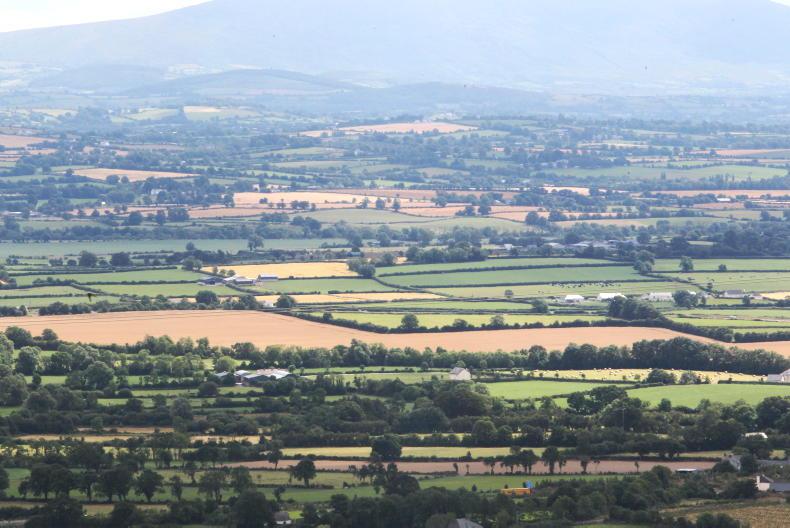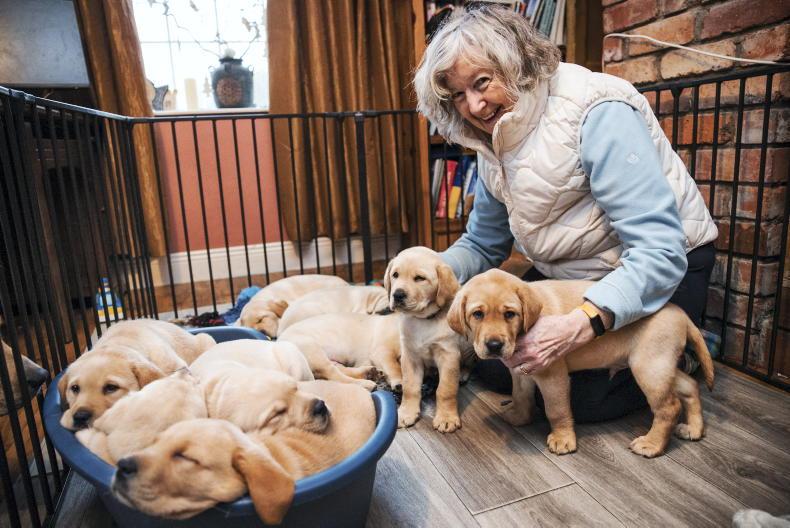‘Did you remember to say thank you?” We might prompt our children to say this after a party or a treat, but by saying these words do they actually experience gratitude, or are we merely instilling good manners in them?
Being grateful for what we have is easily forgotten in a world where we’re constantly influenced into thinking about what we want and bombarded with images of ‘best lives’ on social media.
However, if we take stock for a moment and appreciate what we have, we will reap the benefits, according to Dr Claire Crowe, member of the Psychological Society of Ireland (PSI).
“The research shows a direct link between gratitude and happiness,” says Claire. “Nurturing gratitude is a great way to support our children’s wellbeing into the future. It’s a cornerstone of parenting that we sometimes overlook.”
Gratitude isn’t easy if something is in plentiful supply, or even in excess. It’s difficult, for example, for our children to be effusive in their gratitude for a dinner, even if it’s their favourite, when it’s something they experience every day. A “thank you” in this instance is just good manners.
“We tend to feel grateful when we receive something novel or intermittent,” explains Claire. “If you were to tell them something really exciting like, ‘We’re going to go to Disneyland,’ suddenly there’s a real groundswell of appreciation. It’s a very different experience for the child.”
The trap we fall into
This can lead parents to aim to achieve that buzz of gratitude by bigger and better things, or more frequent treats, which Claire cautions against. “That’s a trap that parents sometimes fall into: ‘I need to give more in order to get back that experience of gratitude,’” Claire says, “when actually the reality is, in order to create a culture of gratitude, we need to do the reverse.”
Claire would recommend paring back to foster genuine gratitude- so have a weekly treat rather than biscuits every day. Treat day or a Friday movie becomes a special day then, with the excitement building through the week.
Less is more when it comes to appreciation of experiences, too. “On family days out, start a rule that they don’t get a toy or a treat,” advises Claire. “The reward is the trip itself and doesn’t need another addition to it.” If there’s always an add-on children can come to expect them, so they lose their shine.
“I would encourage parents to really stand over this,” says Claire. “The experience is enough – it’s good enough and valuable.”
Culture of expectation
Claire recommends dispelling this culture of expectation further by delaying gratification. Take the authority as the parent, when relatives or visitors come to the house with gifts and treats, and say, “Thank you very much for bringing the tin of chocolates/present for the kids, but, if you don’t mind, we’re going to put them away and bring them out when it’s someone’s birthday or a special occasion, like they’ve won their GAA final.” This delayed gratification and sense of not always getting these treats means that children appreciate them all the more when they do come and filters into that sense of gratitude.
Talking about gratitude with your child can lead to depth in your conversations, especially if we compare what we have with others. “An essential element of happiness is not what we have, it’s that perspective of what we have and that’s why gratitude is key to happiness,” explains Claire. “You might get a 9-year-old start off by saying, ‘I’m really grateful that we won the match earlier in the day’ and then that shifts to, ‘I’m really grateful that we live somewhere safe because I saw it on the news that the kids in Gaza aren’t safe.’”
Not black or white
Conversely, children shouldn’t be made to feel they have to be grateful all the time. It’s natural in moments of disappointment to feel you can’t be grateful. Equally, sustained elevated states of happiness aren’t sustainable physiologically or authentically.
“Part of our role as parents is pulling away from the black and white of emotions and buying into the nuance and complexity, because then it gives the child permission not to have to buy in or feel, ‘I should be happy’ or, ‘I should be doing something to create this happy,’” says Claire.
Nonetheless, creating a culture of gratitude in our families is important. “For parents, modelling saying thank you and showing appreciation for one another helps children learn that this is what’s kind and what’s expected.”
Taking time
Of course, the handwritten thank you letter, often replaced with a text (guilty!) in recent years, is a wonderful way of taking the time out of our busy lives to tell someone you are grateful - not just for the gift, but also the thought and care behind it. In this way, the present is not just an object but becomes connected to the person who gifted it.
Claire emphasises the importance of thank you letters, “It’s the time taken to sit down and write something - it’s really powerful. There’s something so important for the gift-giver to have the sense of appreciation that they took the time to say how they used it. It’s the smallest thing but gratitude should come from both sides.”
No time like the present. Find the time, sit down and get writing those thank yous.
Read more
Parenting: baby you can drive my car
Transition year: Bridging the gap
‘Did you remember to say thank you?” We might prompt our children to say this after a party or a treat, but by saying these words do they actually experience gratitude, or are we merely instilling good manners in them?
Being grateful for what we have is easily forgotten in a world where we’re constantly influenced into thinking about what we want and bombarded with images of ‘best lives’ on social media.
However, if we take stock for a moment and appreciate what we have, we will reap the benefits, according to Dr Claire Crowe, member of the Psychological Society of Ireland (PSI).
“The research shows a direct link between gratitude and happiness,” says Claire. “Nurturing gratitude is a great way to support our children’s wellbeing into the future. It’s a cornerstone of parenting that we sometimes overlook.”
Gratitude isn’t easy if something is in plentiful supply, or even in excess. It’s difficult, for example, for our children to be effusive in their gratitude for a dinner, even if it’s their favourite, when it’s something they experience every day. A “thank you” in this instance is just good manners.
“We tend to feel grateful when we receive something novel or intermittent,” explains Claire. “If you were to tell them something really exciting like, ‘We’re going to go to Disneyland,’ suddenly there’s a real groundswell of appreciation. It’s a very different experience for the child.”
The trap we fall into
This can lead parents to aim to achieve that buzz of gratitude by bigger and better things, or more frequent treats, which Claire cautions against. “That’s a trap that parents sometimes fall into: ‘I need to give more in order to get back that experience of gratitude,’” Claire says, “when actually the reality is, in order to create a culture of gratitude, we need to do the reverse.”
Claire would recommend paring back to foster genuine gratitude- so have a weekly treat rather than biscuits every day. Treat day or a Friday movie becomes a special day then, with the excitement building through the week.
Less is more when it comes to appreciation of experiences, too. “On family days out, start a rule that they don’t get a toy or a treat,” advises Claire. “The reward is the trip itself and doesn’t need another addition to it.” If there’s always an add-on children can come to expect them, so they lose their shine.
“I would encourage parents to really stand over this,” says Claire. “The experience is enough – it’s good enough and valuable.”
Culture of expectation
Claire recommends dispelling this culture of expectation further by delaying gratification. Take the authority as the parent, when relatives or visitors come to the house with gifts and treats, and say, “Thank you very much for bringing the tin of chocolates/present for the kids, but, if you don’t mind, we’re going to put them away and bring them out when it’s someone’s birthday or a special occasion, like they’ve won their GAA final.” This delayed gratification and sense of not always getting these treats means that children appreciate them all the more when they do come and filters into that sense of gratitude.
Talking about gratitude with your child can lead to depth in your conversations, especially if we compare what we have with others. “An essential element of happiness is not what we have, it’s that perspective of what we have and that’s why gratitude is key to happiness,” explains Claire. “You might get a 9-year-old start off by saying, ‘I’m really grateful that we won the match earlier in the day’ and then that shifts to, ‘I’m really grateful that we live somewhere safe because I saw it on the news that the kids in Gaza aren’t safe.’”
Not black or white
Conversely, children shouldn’t be made to feel they have to be grateful all the time. It’s natural in moments of disappointment to feel you can’t be grateful. Equally, sustained elevated states of happiness aren’t sustainable physiologically or authentically.
“Part of our role as parents is pulling away from the black and white of emotions and buying into the nuance and complexity, because then it gives the child permission not to have to buy in or feel, ‘I should be happy’ or, ‘I should be doing something to create this happy,’” says Claire.
Nonetheless, creating a culture of gratitude in our families is important. “For parents, modelling saying thank you and showing appreciation for one another helps children learn that this is what’s kind and what’s expected.”
Taking time
Of course, the handwritten thank you letter, often replaced with a text (guilty!) in recent years, is a wonderful way of taking the time out of our busy lives to tell someone you are grateful - not just for the gift, but also the thought and care behind it. In this way, the present is not just an object but becomes connected to the person who gifted it.
Claire emphasises the importance of thank you letters, “It’s the time taken to sit down and write something - it’s really powerful. There’s something so important for the gift-giver to have the sense of appreciation that they took the time to say how they used it. It’s the smallest thing but gratitude should come from both sides.”
No time like the present. Find the time, sit down and get writing those thank yous.
Read more
Parenting: baby you can drive my car
Transition year: Bridging the gap









SHARING OPTIONS